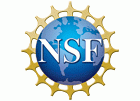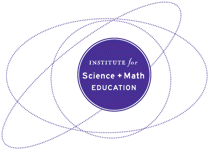Designing and participating in community and citizen science efforts to support equity and justice

Why it Matters to You
- Project teams and facilitators should practice in ongoing reflection about their positionalities in the community as they center cultural diversities of STEM knowledge and practices in their efforts.
- Educators should work to center the worldviews, knowledge, and interests of the communities they serve in community and citizen science efforts.
- Organizational Leadership should support the design and redesign of citizen science projects to authentically give voice to the communities their efforts impact the most.
What Is The Issue?
Community and citizen science can mobilize diverse groups of stakeholders in collaboratively understanding and improving situations in the natural and built world. It is often framed as an opportunity for “nonscientists” to participate in the advancement of science, especially when organizers seek to engage communities underrepresented in STEM, such as People of Color, people of lower socioeconomic status, rural communities, and womxn. Projects promoting equity and justice in STEM must engage these communities not only in data collection, but as full collaborative partners.
Authors:
BY CHRISTINA GUEVARA AND PHILIP BELL | May 2021
Reflection Questions
- Are community members active participants in the design of science projects, rather than “targets” of efforts? This can improve the efforts, support multiple ways of knowing within a project, broaden participation, and support deeper learning.
- For projects already underway, how can you expand it to include additional modes of participation and collaboration?
Things to Consider
- Community science has great potential to increase the diversity of public participation in science and to support local flourishing. For that to happen, projects must reflect the diversity of communities and their concerns without reinforcing existing inequities in science and society.
- To bring these perspectives and concerns into citizen science work, community members must be involved throughout the process. Within the Gardenroots Project, for example, project leads work alongside the community at every step of the design and implementation process, valuing and incorporating multiple forms of knowledge so the learning is relevant and meaningful to the lives of community members.
- Citizen science can have several goals, like supporting participants’ learning, engaging the public in science, or contributing to community scientific literacy. Collaboratively identifying and communicating goals builds a collective understanding that all stakeholders (e.g., researchers, community members, students, etc.) bring valuable and diverse expertise to the project, including the design process.
Attending to Equity
- Using language such as, “nonscientists” is a deficit view that positions essential project collaborators as non-experts within the project and assumes who is capable of participating. Challenge assumptions about who is a scientist by welcoming and respecting the multiple ways of knowing that historically marginalized communities bring to STEM engagement. Community collaborators are a source of creative perspectives necessary for STEM innovation.
- When engaging in collaborative design, be explicit about the process. Considering Western science’s history of exploiting communities of color who are often underrepresented in STEM, it is crucial to develop a shared and clear understanding of roles, decision making, data collection and sharing, and ownership of intellectual property. Organizers should consistently address power imbalances and create space for stakeholders to challenge assumptions and learn together.
Recommended Actions You Can Take
- CAISE outlines three categories of public participation in science research including: contributory projects (designed by scientists with data collection contributions from the public), collaborative projects (designed by scientists with public contributions like data collection, project design refinement, data analysis, and sharing of findings), and co-created projects (designed by scientists and members of the public working together throughout the process). Explore this CAISE resource collection to learn more about different citizen science projects.
- The NASEM Report on Citizen Science details these Guiding Considerations: (1) Know the Audience, (2) Adopt an Asset-Based Perspective, (3) Intentionally Design for Diversity, (4) Engage Stakeholders in Design, (5) Capitalize on Unique Learning Opportunities Associated with Citizen Science, (6) Support Multiple Kinds of Participant Engagement, (7) Encourage Social Interaction, (8) Build Learning Supports into the Project, and (9) Evaluate and Refine the effort.
- Consider using a Community-Based Participatory Research or Participatory Action Research framework when designing your citizen science project. The Black Brilliance Research Project illustrates how to engage with community to support existing and ongoing justice projects.
- Engage in collaborative problem-solving with community members, so projects grow out of the community’s wants and needs. Initiatives like the West Oakland Environmental Indicators Project use a collaborative model of power sharing to ensure equitable decision making and create accountability and common ground among stakeholders.
ALSO SEE STEM TEACHING TOOLS
STEM Teaching Tools content copyright 2014-22 UW Institute for Science + Math Education. All rights reserved.
This site is primarily funded by the National Science Foundation (NSF) through Award #1920249 (previously through Awards #1238253 and #1854059). Opinions expressed are not those of any funding agency.
Work is licensed under a Creative Commons Attribution-ShareAlike 4.0 Unported License. Others may adapt with attribution. Funded by the National Science Foundation (NSF). Opinions expressed are not those of any funding agency.


 Email Feedback
Email Feedback

